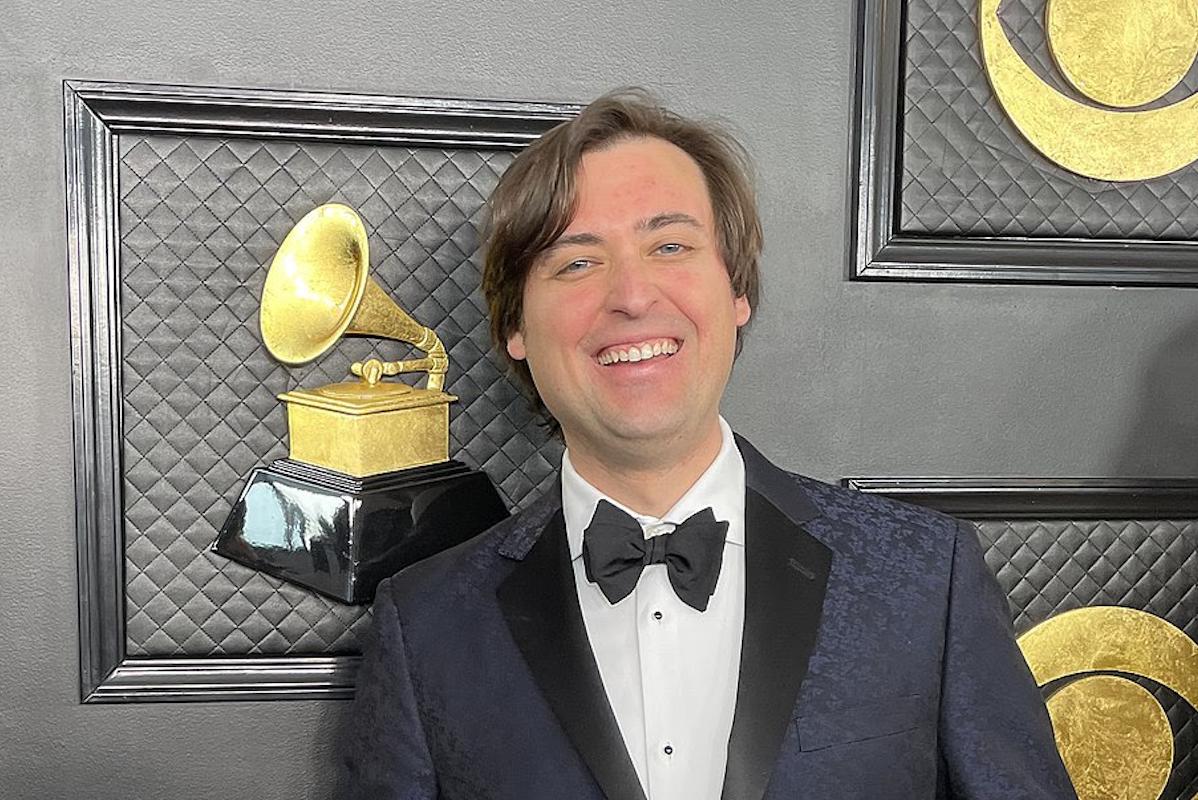The Mid-Atlantic Symphony Orchestra played the first of its final set of concerts in a 25th anniversary season. It also marks the debut of its new music director, Michael Repper, who won the Grammy Award for best orchestral performance in February.
The opening night concert Thursday at Chesapeake College’s Todd Performing Arts Center featured guest soloist Dominique de Williencourt, a Knight of the French Order of Merit, among many other honors, performing Shostakovich’s Cello Concerto in E-Flat Major. I can’t say that de Williencourt labored through what is widely regarded as the most challenging concerto ever written for his instrument. Still, by the end of the frenetic fourth-movement finish, he looked like a triumphant athlete catching his breath after a 25-minute sprint. After the concert, he said modestly of his 1754 Gagliano cello, “It practically plays itself.”
The concerto opens with a four-note theme repeated most prominently toward the end, giving the piece a cyclical structure. Born in Russia under the 20th-century Soviet regime, Shostakovich was regarded suspiciously by Kremlin autocrats – particularly Stalin – who denounced his modern music as insufficiently proletarian. In this, his first cello concerto, he may have sought to curry favor by including references to one of Stalin’s favorite songs, the title of which translates as “Soul.” But by his twisted interpretation of the tune – replete with musical distortions that seem impossible to play with any clarity – the composer may well have been thumbing his nose at the mass-murder dictator. Whatever the historic motive, the gyrations between strident attacks on the strings followed by pizzicato intervals seem intended to punish any cellist who dares to take on the challenge. De Williencourt, with Repper and 42 MSO musicians as skilled accomplices, manages to make sense of what could be anarchic cacophony.
The evening began with a short performance that reflected both the accomplishments of Repper, who guided New York Youth Symphony students to create an award-winning album and earned a Grammy for it, and the MSO. The MSO, known for its annual competition for young chamber ensembles, featured the winner of the inaugural Dove Marimba Competition held at D.C.’s Kennedy Center for its season finale series. The competition, named after MSO timpanist Barry Dove, gave 16-year-old Rishab Jain a chance to perform a solo gig with the orchestra. He showcased the fourth movement of Brazilian composer Ney Rosauro’s Marimba Concerto No. 1. Latin folk themes came to life with teardrop notes tapped out on a similar instrument older Americans may know as a xylophone.
After intermission, Repper and the orchestra were on their own – sans solo support – except for reprises by individual MSO musicians. Czech native Dvorak’s epoch “New World” symphony – his ninth – written on a years-long exposure to the USA (principally New York and Iowa), is a Romantic crowd-pleaser for all time. Perhaps ahead of his time or not fully realizing the stain of America’s original sin of slavery, Dvorak said in the 1890s, “The future of music of this country must be founded on what is called ‘Negro melodies.’ . . . These beautiful and varied themes are the product of the soil. They are the folk songs of America.” Several such folkloric strands are evident in the first-movement theme that resembles “Swing Low Sweet Chariot.” A scherzo second movement highlighted by a foundational theme for French horn played by Mark Hughes includes brief solos from virtually every section of the orchestra, becoming more apparent on the catchy repeating melody, reminding us of why America is still great despite its tragic flaws. Mid-Atlantic Symphony Orchestra Season Finale
Thursday, April 27, Chesapeake College, Wye Mills. Remaining concerts, 7 p.m. Saturday, April 29, Cape Henlopen High School, Lewes, DE, 3 p.m. Sunday, April 30, Ocean City Performing Arts Center; midatlanticsymphony.org
Steve Parks is a retired New York arts critic now living in Easton.



Write a Letter to the Editor on this Article
We encourage readers to offer their point of view on this article by submitting the following form. Editing is sometimes necessary and is done at the discretion of the editorial staff.